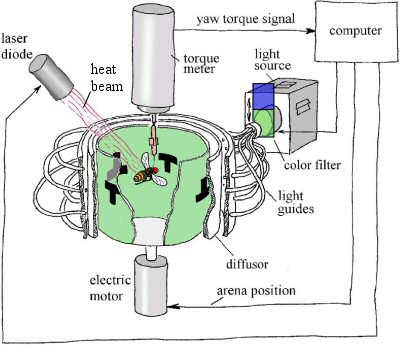I spend too much time worrying about whether we live in a simulation so of course that's what SDSS makes me worry about. As it's traditionally put by the likes of Bostrom or Descartes, the question is how we could be sure that what we think is reality is not a simulation, but it might actually be more interesting to ask how we could ever be sure that we are. The reason I mention this now is that it is exactly the kind of activities that Weaver and his colleagues are engaging in that are likely to piss off our simulators. Why? Some of the characteristics you might expect to see on the inside of a simulated universe are those which limit the amount of data the simulators have to crunch: i.e., resolution limits, and limits to how much of the game volume you could observe and interact with. So looking up and making the most detailed image ever (by orders of magnitude) of the universe that surrounds us is one of the worst possible things you could do. Weaver will soon receive a stern visit from Special Agent Smith because he's slowing down their mainframe.

See, they hate this. Before they could just put a bunch of dots up there and have like Atari 2600 graphics with square baseballs and it didn't matter because we weren't paying attention. But as soon as we really scrutinize it we're forcing them to dedicate all kinds of resources to keeping this looking convincing. We're asking for trouble. From SDSS.
I should add that increasingly for me, the simulation question is becoming a word game and a chance to make jokes. The reason is that the epistemology is sloppy, and what people call a simulation (or not) is not clearly defined and/or not that useful. To wit: are people with delusions in a simulation? They see the same thing you do, but come up with a different model of the world. What about people who believe a lie they were told? What about people with bad theories of the world, i.e. phlogiston, geocentrism, and surely in some cases, you and I right now? How about when you're watching a movie? Or when a drug shuts off your pain sense? Why not why not why not? The difference between Neo in the vat and someone who's sure they parked in this parking lot rather than that one looks more and more like a spectrum, with a quite arbitrary cut-off needed to determine where it starts being a simulation.

A flight simulator built in order to convince fruit flies that they're flying fast, and study their neurons in real time. Is this a simulation? Why or why not? From the website of Dr. Björn Brembs.
In the sense that we are only aware of a model of the world synthesized through a somewhat arbitrary set of filters, we are already in a simulation. What seems to concern people is whether the inputs are gaming our nervous system in arbitrary rule-based ways, and whether we were put in this situation by intentional beings, and both of these seem to be curiously human concerns. (A perennial question is why those intentional simulators would bother with all this, although the Drosophila above are quite unable to understand why or how we would do this.) I think these questions really do reduce back to the exist-or-not question that Descartes encountered, and the of it is just details about how we know the world and experience pleasure and pain, whether or not more information would tell us that spacetime is actually someone's flash drive.
2 comments:
I don't know, Mikey.
Light pollution is enough to keep the detail overhead down on all but a very few observers.
Put the astrophysicists on a specialized server that runs a more detailed simulation. Let them filter and pass information to the masses. It's very simulation2.0 to let the simulees to the simulating for you.
Did you ever notice that it takes friggin' forever to focus a cheap telescope or microscope on anything? That's lag as you tunnel to a view from another, more detailed simulation. Yet, it's nearly instantaneous to focus on commercial TV...
See? OBEY. MARRY AND REPRODUCE, Mr. Anderson. I hope the simulators don't mind mixed movie references.
Post a Comment